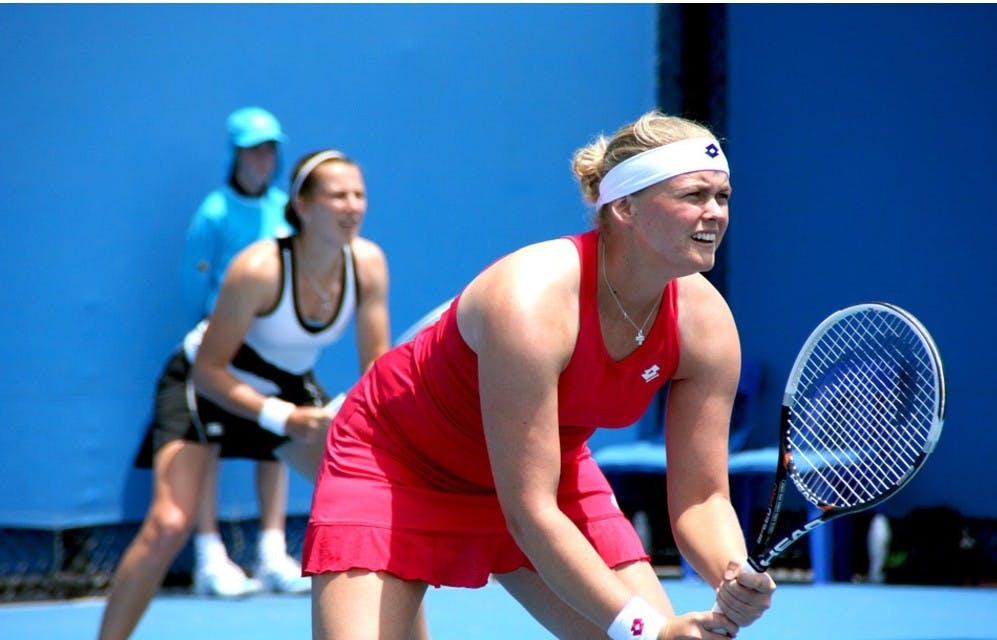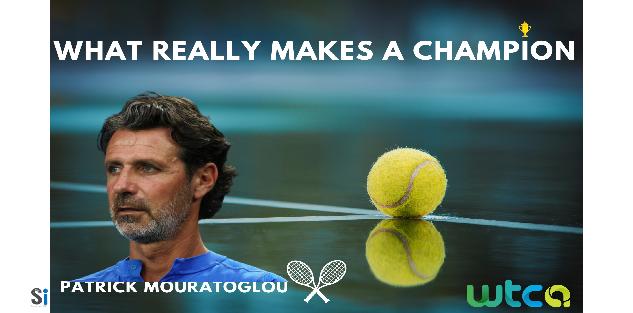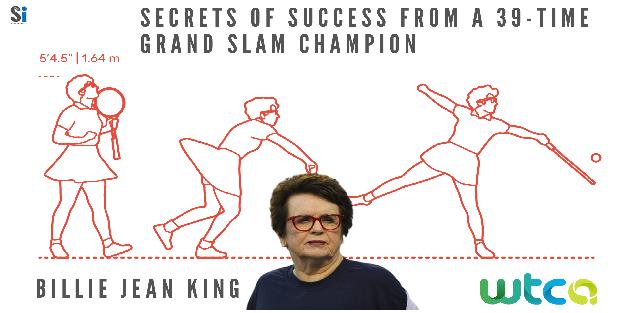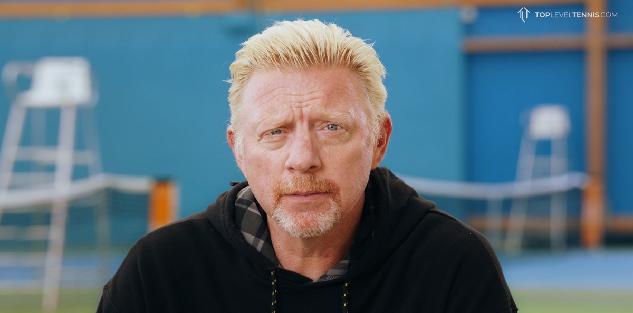Featured courses
- Four Tips to Turn Your Tennis Forehand Into a Weapon by Grant Young
- Tennis Legend Billie Jean King’s 4 Responsibilities as a Player by Grant Young
- Two Top Priorities For Success in Doubles Tennis by Grant Young
- Three of Tennis Whiz Lisa Dodson’s Tips to Improve Serves by Grant Young
- Three Elite Tennis Ball Machine Drills by Grant Young
- Three Keys For Correcting Tennis Serving Mechanics by Grant Young
- Five Tactical Tips to Win More Tennis Matches by Grant Young
- 4 Lessons Patrick Mouratoglou Learned From Coaching Serena Williams by Grant Young
- Four Effective Backhand Tennis Drills by Grant Young
- Two of Legendary Tennis Coach Paul Annacone’s Crucial Player Development Tips by Grant Young
- A Step-By-Step Guide To Mastering The Serve by Krsto Arsenijevic
- How to Dominate the Clay Court in Tennis by Krsto Arsenijevic
- 10 Essential Tennis Drills Every Coach Should Know by Brandon Ogle
- 8 Pre-Game Exercises to Prime Your Tennis Team for Competition by Neil Brown
- 7 Proven Tips To Develop Your Net Game in Tennis by Krsto Arsenijevic
- 10 Essential Tennis Drills Every Coach Should Know by Krsto Arsenijevic
- Developing Players - Two-handed backhand by Ramon Osa
- 6 Simple Warm-up Exercises For Tennis Players by Krsto Arsenijevic
- How to Beat a Serve-and-Volley Player by Krsto Arsenijevic
- How To Build Your Kinetic Chain Like Djokovic by Aiden Lefebvre
- How to neutralize a lefty in Tennis by Aiden Lefebvre
- 5 Tips To Improve Your Tennis Game Today by Krsto Arsenijevic
- Everything You Need to Know Before Buying New Tennis Shoes by Brandon Ogle
- Amp up your tennis practice with situational play by Neil Brown
- Tennis Equipment List by Brandon Ogle
- How to Master The One-handed Backhand in Tennis by Krsto Arsenijevic
- Modern High School Tennis Coaching Obstacles by Neil Brown
- Increase Your Tennis Fitness Level With 3 Easy Drills by Krsto Arsenijevic
- How to Successfully Hit a Two-Handed Backhand by Brandon Ogle
- How to Become a Grass Court Specialist in Tennis by Brandon Ogle
- How to Dominate the Hard-Court like Serena Williams by Brandon Ogle
- Hit a Drop Shot to Keep Your Opponent Off-Balance by Brandon Ogle
- New Tennis Injury Findings Linked to Neutral & Closed Stances by Oscar Wegner
- CHATTING WITH TENNIS PRO BRUCE CONNORS by Brandon
- How to Become a Mentally Strong Tennis Player by Brandon Ogle
- How to Win the Game of Angles by Hitting Cross-Court Shots by Eric Mahnke

How to Become a Mentally Strong Tennis Player
- By Brandon Ogle
Ever heard the quote about sports being like a chess match? Well, the truth is that this statement holds true for both team and individual sports. Although tennis can be played with a teammate, it is a sport that is also commonly participated in through singles matches. Between playing strategies and handling the many ups and downs of a match, players looking to raise the level of their overall game need to be mentally strong. This article will discuss some of the elements that go into being an elite mental player.
True Mental + Physical GameGame
“Tennis is mostly mental. Of course, you must have a lot of physical skill, but you can’t play tennis well and not be a good thinker. You win or lose the match before you even go out there.” This observation comes from one of my favorite tennis players of all-time, Venus Williams. At one time, Venus was one of, if not the most, dominant female tennis players on the world. Unfortunately, health conditions have forced her to adjust her playing strategy. No longer can she keep overpowering her opponents for multiple sets in a row. She has been forced to adopt a more measured, strategic approach to her game. Tennis is mental and physical. You can’t have one without the other and expect to be effective. Numerous times I’ve seen players with incredible physical attributes get beat by less physically talented players that are more in tune with the mental aspects of the game. A good balance of mental and physical focus is vital to one’s success in Tennis.
Concentrated Effortfort
Tennis can be a difficult game to master depending on how interested you are in it. With this said, concentration can become a major road block depending on how immersed you are in the sport. First off, I’ll start with the matches. Depending on the age level, matches can vary from a couple of games to multiple sets. As a result, they can drag on for longer periods of time with little opportunity to relax. Along with this, momentum can easily change over the course of a match. You must retain concentration for the entirely of the match to prevent lapses. One thing I’ve found to be useful in this process is to treat every point like a new challenge. It’s easy to take a couple points off if you get ahead by two or three breaks of serve. However, this is where momentum changes hands.
The second area where concentration is critical is during practice sessions. Practice is the perfect time to repeatedly practice the shots you’ve been struggling with. If the backhand has been a weak spot, you don’t just hit it a couple of times until the swing looks good. You must find out the correct motion and hit it time-after-time. For some, this can be a boring process, but it is the only way to truly master the overall sport.
In-Game Tacticstics
As I mentioned in the introduction, tennis is a game of constant adjustments. Players carefully analyze their opponents in the early parts of a game to gauge their strengths and weaknesses. Unless you have the immense physical tools to just hit it past them time and time again, then you need to make careful adjustments from a mental side of things. One of the most important mental skills to achieving victory in tennis is learning to be a problem solver on the court. Every player has tendencies. Whether you recognize them or not, you have tendencies, just as your teammates and opponents do. Some of these may be easily exploited. It is your job as a mentally elite player to make your tendencies less noticeable and take advantage of those exhibited by your opponent.
Understand the Rulesules
If you truly want to improve your skills in a sport, it is crucial to be an expert on the rules. I understand this can be difficult for beginners, but it doesn’t take long to master them. If you have some free time, pick up a book to read the basics. This will help you understand some of the general terminology, as well as the difference between singles and doubles. To add to this knowledge, I suggest watching tennis on T.V. Here you’ll be able to carefully observe the scoring, player’s behaviors and the rules of the game in action. Of course, through the first hand experience you’ll gain as you play more matches, you’ll be able to rattle off the rules without even thinking twice!
Passion for the GameGame
One mental skill that doesn’t take a lot of thinking or mental intelligence is motivation, or a love for the game. If you’re going to put in the work to be a great tennis player, a passion for the sport is essential. Players with this passion are not only more likely to put in the extra work to get better, but won’t give up easily in games. They won’t let an early deficit discourage them and will continue to battle. This is the type of mental attitude that makes a strong opponent.
Picture this: you get up 4 games to 0 in a best of 3 set match. Obviously, this is an ideal situation for the leader as he or she has all but locked up the first set. However, the player on the other side of the net looks intrinsically motivated and not even rattled one bit. Although the first set may be nearing its end, the player trailing is going to give it their all to either come back on the first set or try to gain some momentum for the rest of the match. Isn’t it easy to see how this opponent would be tougher and more intimidating than one that would just phone it in after the early hole?
No FearFear
There are so many different shots you can hit in a tennis match. From a slice to forehand to smash to so many others, the opportunities are almost endless. With this being the case, you can’t be hesitant to try new shots or even different playing styles as a whole. If you see someone else playing in a manner that intrigues you, don’t hesitate to incorporate that into your own game. From a different perspective on saying no to fear, you’ll most likely find yourself matched up with some opponents that are simply more talented. Whether it be having endless stamina or an elite serve, these players appear to be unbeatable. The best way to be resilient against them is by adjusting your playing style.
For example: I’ll take the player with the huge serve. Based on their style, it isn’t going to be wise to stand on or inside the baseline even if that is what you would typically do that against an opponent. Rather, take a step or two back and give yourself plenty of room. Generally, big servers aren’t the most fleet-of-foot. Under this assumption, the best strategy would be to get the first return over and then look to extend the match. It all comes down to breaking down your opponent’s game early on!
(Because I mentioned the variety of shots available in a tennis match, I’ve included a link to a video from CoachTube. It is taught by Oscar Wegner and essentially shot-by-shot goes through the most common shots. Check it out if you’re new to one!)
Decisive, yet Cautiousious
Players that aren’t decisive often get themselves into positions where their opponent can guess where the return is coming. The take-away message from this final section is to make a decision and go with it, but keep in mind the situation. If you’re in need of a winner and your opponent leaves the cross court side open, go for it! Sometimes the tougher shot is what is needed to alter the course of a match. On the other hand, there are also times where caution needs to be exercised. It all goes back to the idea of knowing the situation. If your opponent has been erratic time and time again, then doesn’t it make sense to take the safe approach and force them to beat you? Sometimes all you need to do is return the serve to give yourself a reasonable chance at the point.
Student of the GameGame
If you truly want to become a mentally strong tennis player, you need to become a student of the game. There are plenty of players that possess the excellent physical tools needed to excel on the tennis court. However, this is only half the game. Throughout this article, I’ve delved deeper into a few of the mental aspects of Tennis. Between passion, aggression, tennis intelligence, and concentration, there are many areas where a stronger mental approach can give you the upper hand!



